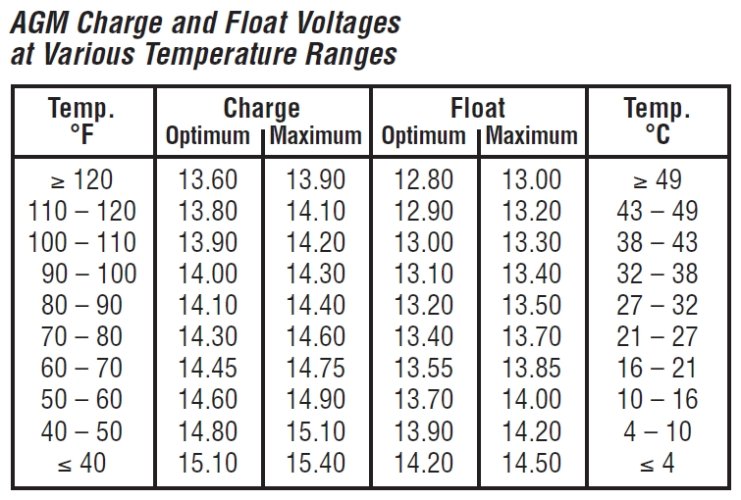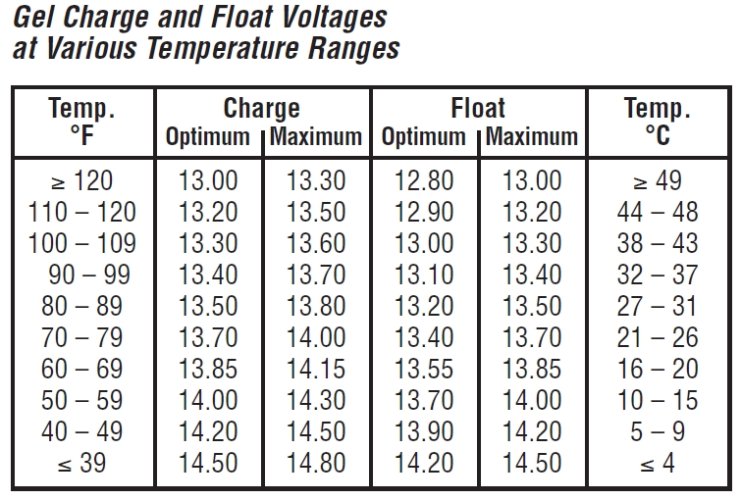globalrider
Alps Adventurer
Reading so many posts on numerous forums about short battery life, I am getting far too many years out of my batteries. What the hell am I doing wrong?
As in 9+ years from conventional lead-acid batteries and also a GEL battery and more recently, an AGM battery in my motorcycles and up to 16 years from conventional lead-acid batteries and one AGM battery in my cars. I should mention that all of these are the factory fitted batteries that came with the vehicle.
The trick? Hell if I know. I do check the alternator output and battery voltage all the time as some of my vehicles come with a voltmeter in the instrument display, and on others, I installed either a cigarette lighter plug-in voltmeter or one that I made from components bought at Mouser Electronics.
So with all the new battery technology, why change with what works? There are several reasons some owners are having battery issues it isn’t always the battery or the charging system.
So I looked at ads and YouTube videos about the latest and greatest batteries available and their sales pitch from salespeople that really do not know much about batteries. Lets see now and see what all the hype is about that they claim…
Eco Friendly: When looking at the mining, the production and disposal of batteries, none of them are Eco Friendly. Can I really chuck that battery into the garbage? The answer is NO, at least if you care about being Eco Friendly.
Long Life: as in 2-3X the battery life (over a conventional battery I would assume) and many state that. In fact when AGMs started to get popular, the battery manufacturer also tried to make you believe that. At the time, I was and still am a true believer in the “conventional battery”, because they can be maintained. I can top them off with distilled water and I can equalize the cells. Also, there is no such thing as a “Maintenance-Free” battery that so many are led to believe; Minimum-Maintenance but not Maintenance-Free as nothing can be done to a VRLA (AGM or GEL) battery. VRLA batteries are so-called sealed but they do vent if needed for safety reasons. So if I am getting 10 and 16 years out of a conventional battery, will I get 20 and 32 from a high-tech battery. I highly doubt it.
Low Self-Discharge: no question about it, when the battery is disconnected and sitting on a store shelf. The same can be said for an AGM battery with a low self-discharge. But these batteries are in a vehicle with certain systems draining the battery while parked at a far greater rate than the ultra-low self-discharge the battery manufacturers claim. That is why “battery maintainers” were invented for vehicles that are parked. The low self-discharge claim is an unimportant feature, so who cares?
Weight: if it matters to you. Sure, I would save 10 pounds on my motorcycle battery and 26 pounds on my car battery (H7 94R 80Ah) of the same size and capacity (Ah). What percentage is that of the vehicle, far less than 1% in my car? So where do they get this “Drop up to 40 lbs instantly!” claim? If you need the bragging rights, fill your boots.
Number of Cycles: these are used as vehicle batteries also called SLI (starting-lighting-ignition) batteries used to start the vehicle (the highest load on the battery) and to act as the capacitor in the charging system for 12V accessories. Number of cycles are only important in cases such as trolling motors where a battery goes from 100% state of charge to say 20% state of charge and it is also important to use a deep-discharge type battery which is normally a GEL battery. The “number of cycles and deep discharges” does not apply in vehicle use.
Greater Energy: why would I need more? The factory batteries have started my motorcycles and cars till the battery dies due to old age (9+ to 16 years). If I have a starting issue, it is due to battery neglect (ultra rare in my case), a high resistance connection or a starter in need of repair.
Improved mileage: oh it is there, but the gain is so small, it cannot be measured. The weight reduction is so insignificant, the difference in rolling resistance cannot be measured. Even if you had to accelerate repeatedly from traffic light to traffic light, that gain cannot be measured.
Improved performance: would best be left to a world class racer who can put in 10 identical lap times and then have then drive the vehicle with each battery, and to make sure there is no bias, not inform them what is under the hood. I highly doubt you’d see any difference.
Cost: lets not go there. In my car, $1200 vs $170…really?
But these high-tech batteries are great in my mobile phone, tablet, laptop and digital camera to mention a few. Vehicles, not so much.
As in 9+ years from conventional lead-acid batteries and also a GEL battery and more recently, an AGM battery in my motorcycles and up to 16 years from conventional lead-acid batteries and one AGM battery in my cars. I should mention that all of these are the factory fitted batteries that came with the vehicle.
The trick? Hell if I know. I do check the alternator output and battery voltage all the time as some of my vehicles come with a voltmeter in the instrument display, and on others, I installed either a cigarette lighter plug-in voltmeter or one that I made from components bought at Mouser Electronics.
So with all the new battery technology, why change with what works? There are several reasons some owners are having battery issues it isn’t always the battery or the charging system.
So I looked at ads and YouTube videos about the latest and greatest batteries available and their sales pitch from salespeople that really do not know much about batteries. Lets see now and see what all the hype is about that they claim…
Eco Friendly: When looking at the mining, the production and disposal of batteries, none of them are Eco Friendly. Can I really chuck that battery into the garbage? The answer is NO, at least if you care about being Eco Friendly.
Long Life: as in 2-3X the battery life (over a conventional battery I would assume) and many state that. In fact when AGMs started to get popular, the battery manufacturer also tried to make you believe that. At the time, I was and still am a true believer in the “conventional battery”, because they can be maintained. I can top them off with distilled water and I can equalize the cells. Also, there is no such thing as a “Maintenance-Free” battery that so many are led to believe; Minimum-Maintenance but not Maintenance-Free as nothing can be done to a VRLA (AGM or GEL) battery. VRLA batteries are so-called sealed but they do vent if needed for safety reasons. So if I am getting 10 and 16 years out of a conventional battery, will I get 20 and 32 from a high-tech battery. I highly doubt it.
Low Self-Discharge: no question about it, when the battery is disconnected and sitting on a store shelf. The same can be said for an AGM battery with a low self-discharge. But these batteries are in a vehicle with certain systems draining the battery while parked at a far greater rate than the ultra-low self-discharge the battery manufacturers claim. That is why “battery maintainers” were invented for vehicles that are parked. The low self-discharge claim is an unimportant feature, so who cares?
Weight: if it matters to you. Sure, I would save 10 pounds on my motorcycle battery and 26 pounds on my car battery (H7 94R 80Ah) of the same size and capacity (Ah). What percentage is that of the vehicle, far less than 1% in my car? So where do they get this “Drop up to 40 lbs instantly!” claim? If you need the bragging rights, fill your boots.
Number of Cycles: these are used as vehicle batteries also called SLI (starting-lighting-ignition) batteries used to start the vehicle (the highest load on the battery) and to act as the capacitor in the charging system for 12V accessories. Number of cycles are only important in cases such as trolling motors where a battery goes from 100% state of charge to say 20% state of charge and it is also important to use a deep-discharge type battery which is normally a GEL battery. The “number of cycles and deep discharges” does not apply in vehicle use.
Greater Energy: why would I need more? The factory batteries have started my motorcycles and cars till the battery dies due to old age (9+ to 16 years). If I have a starting issue, it is due to battery neglect (ultra rare in my case), a high resistance connection or a starter in need of repair.
Improved mileage: oh it is there, but the gain is so small, it cannot be measured. The weight reduction is so insignificant, the difference in rolling resistance cannot be measured. Even if you had to accelerate repeatedly from traffic light to traffic light, that gain cannot be measured.
Improved performance: would best be left to a world class racer who can put in 10 identical lap times and then have then drive the vehicle with each battery, and to make sure there is no bias, not inform them what is under the hood. I highly doubt you’d see any difference.
Cost: lets not go there. In my car, $1200 vs $170…really?
But these high-tech batteries are great in my mobile phone, tablet, laptop and digital camera to mention a few. Vehicles, not so much.



